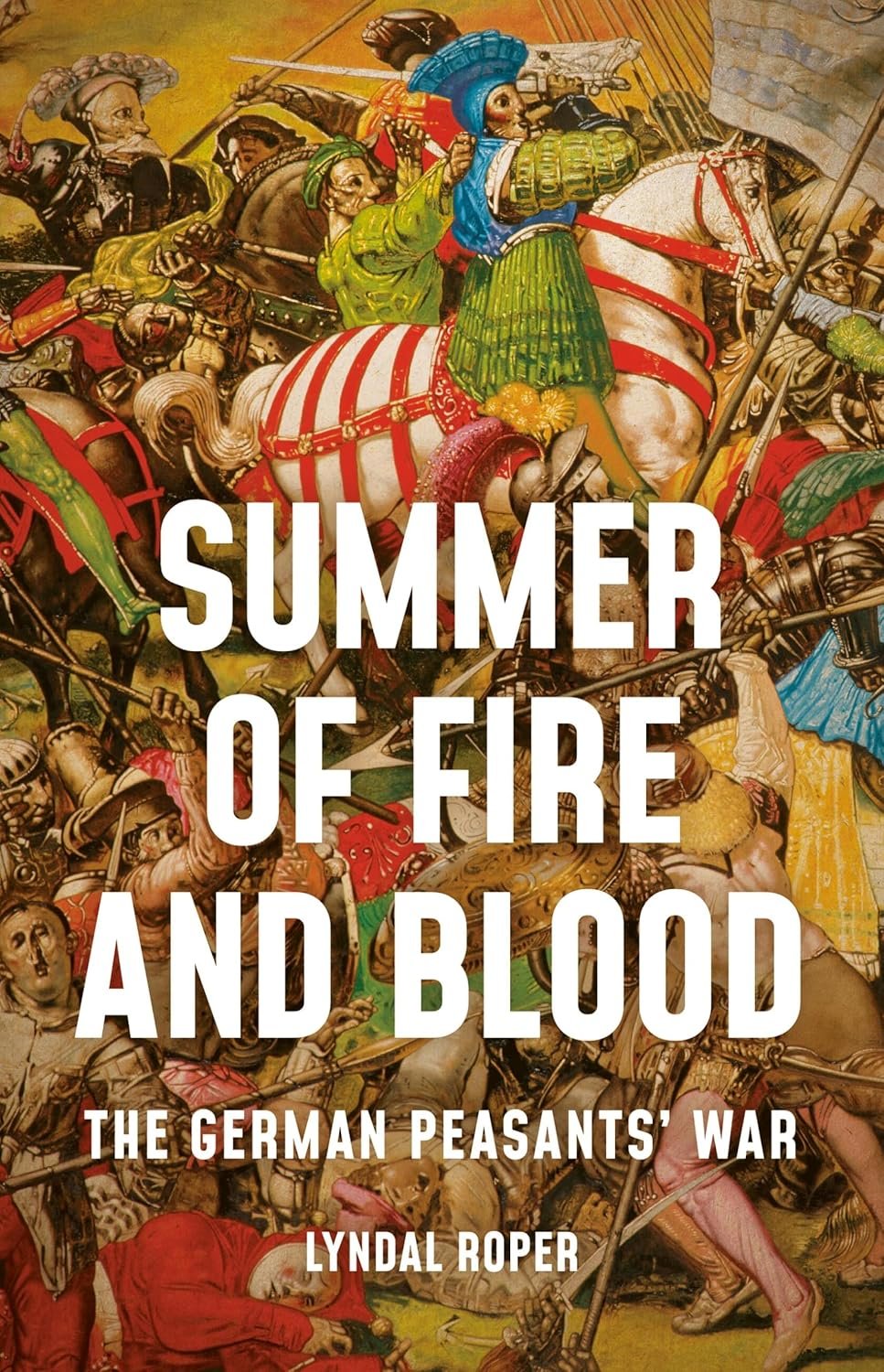Summer of Fire and Blood by Lyndal Roper
/Summer of Fire and Blood: The German Peasants’ War
By Lyndal Roper
Basic Books 2025
Lyndal Roper follows up her insightful biography of Martin Luther with this new book, Summer of Fire: The German Peasants’ War, which she very convincingly views as in many ways the progeny of Luther’s acts and writings. It was Luther, the loud, indomitable voice crying out against the tyranny of lords and the luxury of monks, who emboldened ordinary people across three countries to braveries they’d never articulated before. Roper paints the scene:
By standing up to the emperor, Charles V, at Worms in 1521, Luther had provided an unforgettable example of resistance. A lone monk in a borrowed cassock before an audience of dignitaries arrayed in all their finery, he had confronted the mightiest power in the land and had said his piece, refusing to recant unless convinced by ‘Holy Scripture’. Small wonder that the peasants drew on his ideas for their cause. Small wonder they assumed he would support them.
As Roper points out, he didn’t support them (or, ultimately, anything but himself), but he and his most influential followers gave Scripture to common folk right at the moment when it could serve as kindling for a wide array of smoldering grievances which Roper rightly describes as “pluriform and protean as rural lordship itself.” For months stretching from 1524 to 1525, those fires erupted into the Peasants’ War.
Roper does a very involving job not only fleshing out the many minor characters who drove the revolt and recovering as much of their voices as possible, and she connects the violence of that summer of blood to much broader societal upheavals. Luther and his followers, she points out, “encouraged ordinary folk to read the Bible in German with the implication that they were as wise as, if not wiser than, university-trained theologians with their hair-splitting irrelevancies.” She contends that the complexities and the limits of the Reformation without understanding that the Peasants’ War was the “giant trauma” at its core, a convulsion that was “not the work of any single figure, but of vast numbers of people who joined in bands together, did things they had never imagined doing, and risked their lives for a future they wanted to build,” as she puts it. “They called for the freedom that Christ had bought with his precious blood, and they wanted creation to be ‘free for’ all humans to enjoy.”
The result of these conflated narrative strands is a gripping story of desperate people driven to taking doomed measures against a legion of iniquities, from hated monkish decadence to bad harvests to rapacious barons, some driven by Good Tidings they could at last read in their own native tongue. “Every revolution must be nourished by dreams of a new world, Roper writes. “The revolt was not brought about by sets of ideas in books; it unfolded as people applied Reformation ideas they had heard to their own lives and experienced together what change could mean.”
Steve Donoghue is a founding editor of Open Letters Monthly. His book criticism has appeared in The Washington Post, The American Conservative, The Spectator, The Wall Street Journal, The National, and the Daily Star. He has written regularly for The Boston Globe, the Vineyard Gazette, and the Christian Science Monitor and is the Books editor of Georgia’s Big Canoe News
